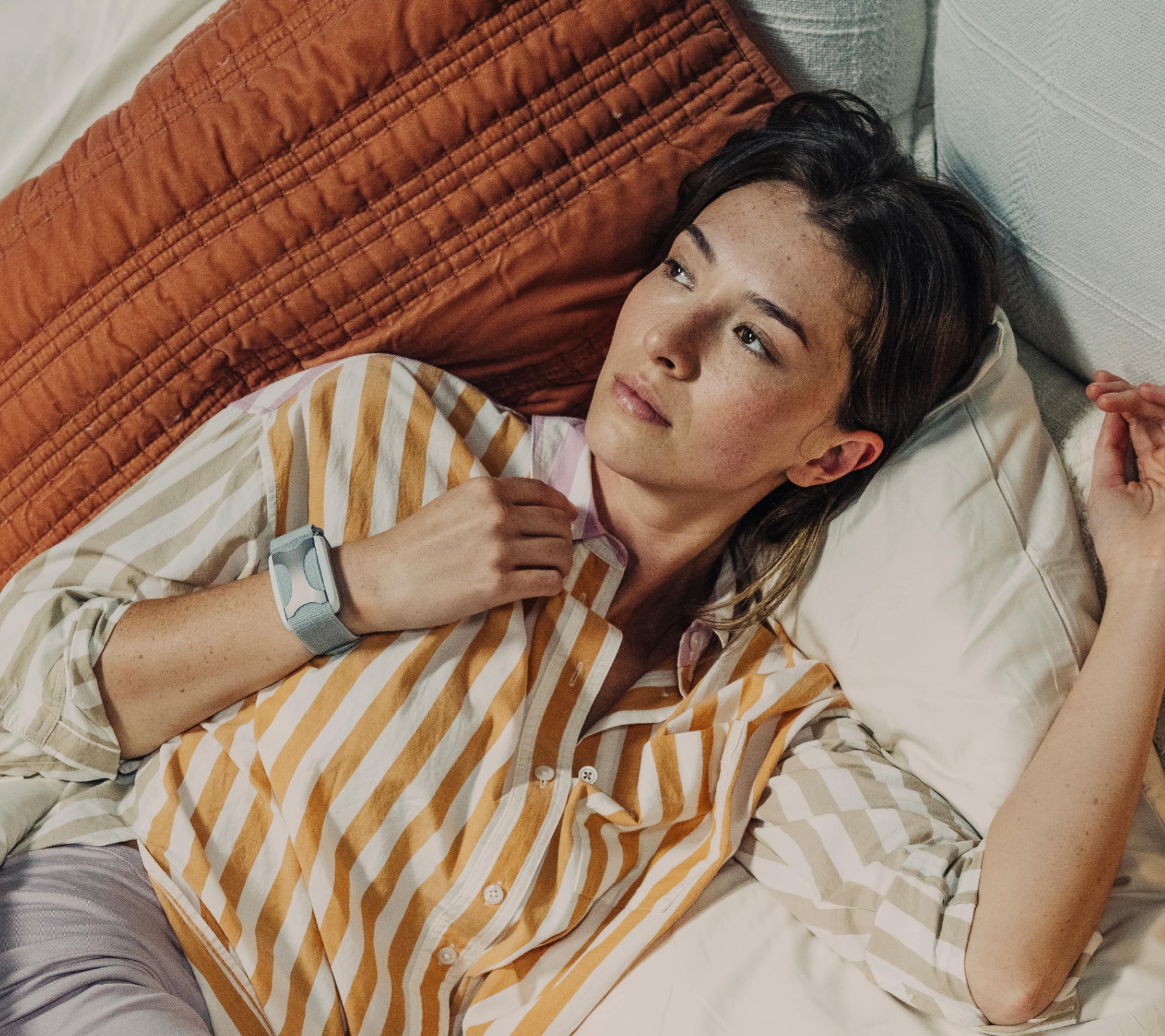By now you’ve probably heard of the circadian rhythm. According to The Sleep Foundation, circadian rhythms are 24-hour cycles that are part of the body’s internal clock, running in the background to carry out essential functions and processes.
One of the most important circadian rhythms is the sleep-wake cycle. It creates a cycling, day-night rhythm that makes you feel alert in the morning and sleepy at night. If you’ve ever traveled across time zones, you know what it feels like to have your circadian rhythm disrupted.
A lesser-known term, however, is the infradian rhythm. While men only experience a 24-hour circadian rhythm, women, on top of that, also experience the infradian rhythm, or monthly cycle. “It’s like the earth rotating on its axis every day, and the moon rotating around the earth every month,” writes Manuela Fortunato, a former researcher in endocrinology, metabolism, and lipid research at Washington University. This greatly impacts how women feel, including influencing their sleep.
The impact of the infradian rhythm
The most commonly referred to human infradian rhythm is the menstrual cycle.
The menstrual cycle has four main phases, which are defined by varying levels of hormones:
- Menstruation phase: days 1–5
- Follicular phase: days 6–14
- Ovulatory phase: days 15–17
- Luteal phase: days 18–28
(Days can vary from woman to woman and from cycle to cycle).
When a woman tunes into her infradian rhythm, she can begin to understand how she changes both physically and mentally during each of these four stages and therefore how to live a healthier, happier life by working with her infradian rhythm, rather than against it.
Throughout each of these phases of a woman’s cycle, shifts may include changes in energy levels, metabolism, and mood. This can impact the foods that you crave, for example. Some women choose to alter their workouts through the month to better tailor to their infradian rhythm.
The effects of the infradian rhythm on sleep
One way the infradian rhythm undoubtedly affects a woman’s health is by impacting her sleep. According to a study published in 2018, the infradian rhythm can affect sleep in a variety of ways. Many women report poorer sleep quality during their luteal phase and during menstruation. During the luteal phase, some women experience reduced rapid eye movement (REM) as well.
In addition, studies have also shown that women with irregular periods are more likely to experience sleep disorders. A study published in 2012 showed that insomnia was twice as likely in women with severe PMS.
5 ways to work with your infradian rhythm to improve sleep
If you’re a woman who experiences an infradian rhythm, take note of when you tend to experience sleeping problems throughout your cycle. For most women, the luteal phase and the menstruation phase can be the most challenging sleep-wise.
During the luteal and menstruation phase (or whenever your sleep may be negatively impacted):
- Consider taking extra time to wind down and relax before bed.
- Use the Apollo wearable on Unwind Vibe well before bedtime to begin to relax and let your day go in order to prepare for sleep.
- Try taking a warm shower or bath before bed.
- Switch to Sleep Vibe on the Apollo when you go to sleep at night.
- Limit your exposure to blue light by reducing screen time in the hours leading up to bedtime. Swap scrolling on your phone or watching Netflix for doing some yoga nidra or reading a book.
Planning around your infradian rhythm can help you get the rest you need when your body’s ready for some downtime.
By paying attention to your infradian rhythm, you may begin to find more balance and ease in every aspect of your life.
What women are saying about regulating sleep with Apollo:
“I’m sleeping better - I love my Apollo! I primarily bought this for my insomnia, which I’ve suffered from since pre-menopause some 14 yrs ago. It has improved my sleep! Even when I forget to wear it every once in awhile!” - Jane R.
“I used to suffer 1 or 2 completely sleepless nights the first night of my period every month. It was brutal and made all my PMS symptoms way worse. I was grumpy, exhausted, and reached for sugar and caffeine to make up for the lost sleep. Ever since I started using Apollo, I haven’t even noticed these nights that used to be so affected by my period.” - Isabel T.











